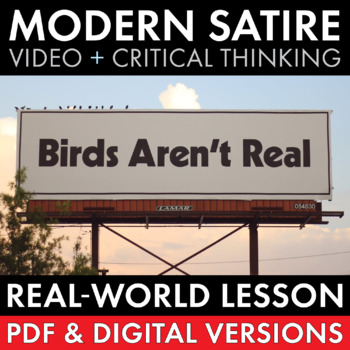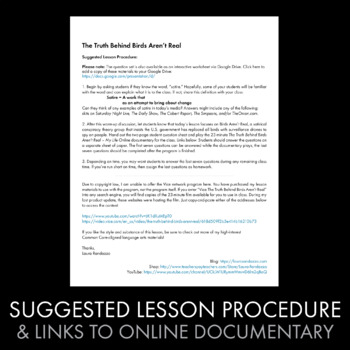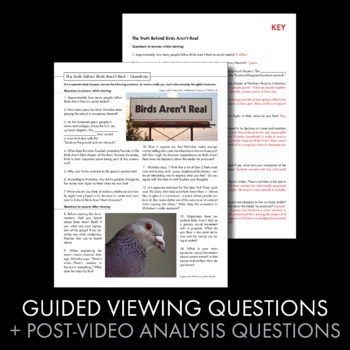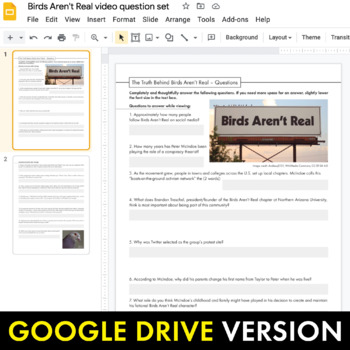Satire Video Analysis, Birds Aren’t Real Conspiracy Theory, PDF & Google Drive
- PDF
- Google Apps™

What educators are saying
Description
Introduce students to the power of modern satire with this video-based lesson featuring a behind-the-scenes look at Birds Aren’t Real, a satirical conspiracy theory group that insists the U.S. government has replaced all birds with surveillance drones to spy on people.
Begin with a quick discussion and definition of satire and then view The Truth Behind Birds Aren’t Real – My Life Online, a high-quality 23-minute documentary available for free (with ads) via two online platforms. Next, ask students to complete a set of critical thinking questions. Finally, review their answers with a full-class debrief/discussion.
This 4-page download (PDF + Google Drive version of student handout) includes step-by-step suggested lesson procedures, links to the free video content, and a question set for students that includes direct recall of information to fill out during the viewing as well as deeper-thinking questions that require synthesis of information and reflection on personal connections for them to complete after viewing the program. A two-page answer key for easy grading or guiding of a classroom discussion is also included.
Students can participate in a full-class viewing or watch at their own speed on 1:1 devices or in your school’s computer lab.
Want more activities like this one? Click here to scroll through my entire collection of video-based lessons: https://www.teacherspayteachers.com/Store/Laura-Randazzo/Category/Video-Based-Lessons-496064
NOTE: This lesson was designed to help students engage in a valuable discussion about online misinformation and is appropriate for 11th and 12th grade classes. Please be aware that a segment of the video presents the founder’s discontent with his conservative Christian upbringing. The program also includes one swear word when the founder says the word, “shit.” Of course, teachers should preview media to determine its appropriateness for their individual classroom community. If you feel any uncertainty, please view the video here before purchasing my lesson materials: https://youtu.be/JK1dXuMEpT0
Thanks for stopping by!
Billboard image credit: Andrewj0131, WikiMedia Commons, CC BY-SA 4.0





